In a year where everything changed, cancer research continued. The Ontario Institute for Cancer Research (OICR) made sure our work to help cancer patients didn’t stop through the COVID-19 pandemic.
Our core team of dedicated researchers and support staff came on site throughout the year to keep essential lab work going, while most of our staff shifted to working from home. This report shares the exciting research results of this unique year and more importantly their impact, both for the Ontario economy and for patients around the world. Cancer research remained of critical importance throughout the pandemic, and will continue to play a central role in the province’s post-pandemic recovery.
The COVID-19 pandemic has had an immense impact on the lives of cancer patients around the world, delaying screenings and surgeries and creating serious challenges in delivering cancer care.
The burden of cancer can still be felt in our communities and will remain long after the pandemic has receded. OICR is committed to improving cancer care for patients now and in the future by bringing made-in-Ontario discoveries to the healthcare system.
Over the last year, OICR-supported clinical trials brought life-changing innovations to Ontario’s cancer centres. These include less invasive and more accurate biopsies for suspected prostate cancer, a new form of radiation therapy that is significantly extending the lives of lung cancer patients and a new treatment approach that is doing the same for those with ovarian cancer. OICR, together with its partners, is enabling translational cancer research in Ontario to bring meaningful benefits to patients by building connections between the province’s leading researchers and the clinic.

21,600+ patients have been recruited to
154 OICR-supported trials (since 2012-13)

Phase III clinical trial of men with a clinical suspicion of prostate cancer finds MRI with targeted biopsies to be more accurate at diagnosis and less intrusive than current standard.
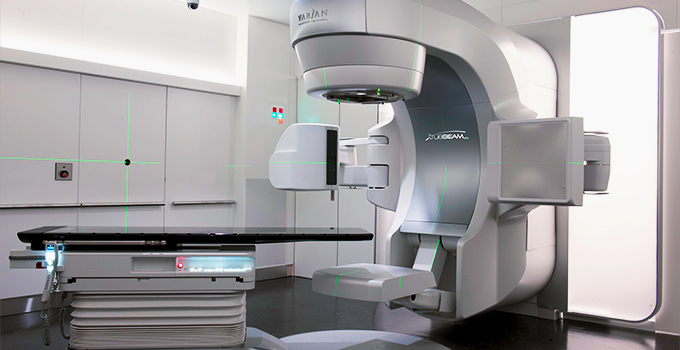
OICR Investigator-led phase II clinical trial shows long-term advantage of ablative therapy for patients with multiple tumours. Technology enters phase III clinical testing.

An OICR-supported research team at the Princess Margaret Cancer Centre has shown that adding a targeted drug to chemotherapy results in longer survival and a stronger response to treatment in a difficult-to-treat form of ovarian cancer.
As a translational cancer research institute, getting research from the lab to patients is at the very core of what we do.
But translational research requires a robust ecosystem of partners working together for success. OICR is helping to foster Ontario’s cancer research ecosystem and helping to drive cancer research forward, both in Ontario and around the world. We create data sharing networks and open source tools like the ICGC-ARGO Data Platform to enable cancer research and solidify scientific collaboration. We are helping made-in-Ontario technologies and improvements in care advance into Ontario clinical trials. We are fostering commercial development to bring the next generation of diagnostic tools and therapies to patients. And we are supporting leading principal investigators and clinicians, as well as hundreds of researchers and trainees across the province, to ensure we have the expertise needed to solve cancer’s greatest challenges. This strong ecosystem helps partners from research, academia, industry and healthcare work together in a common goal to ensure the greatest possible impact of research for cancer patients.

2,076 highly qualified personnel across Ontario enhanced their knowledge, training and skills through participation in OICR-supported projects (2020-2021)

2,100+ publications which are cited on average more than 37 times, as compared to the world average of 7.3 (2016-2020)

OICR’s Genome Informatics team announces international release of the ICGC-ARGO Data Platform, the all-in-one data hub for the largest clinical-genomic data sharing initiative in the world.

OICR-supported study helps move promising CAR-T cell therapy into a first-in-child clinical trial.
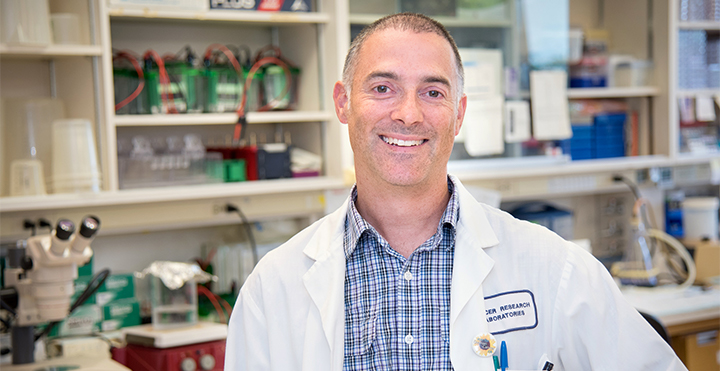
OICR-funded researchers identify promising targets to shut down the spread of ovarian cancer.

OICR Investigator, Dr. Naoto Hirano, expands arsenal of immunotherapy technologies, opening new frontiers in immunotherapy for cancer patients and beyond.
The emergence of COVID-19 generated unprecedented challenges for organizations around the world, bringing some research to a standstill. Through the dedication and adaptability of its researchers and staff, and the support of the Government of Ontario, OICR was able to continue the essential work of cancer research all while making significant scientific contributions to combat COVID-19.
Previous investments in research infrastructure allowed OICR experts in fields such as genomics, informatics and drug discovery to play key roles in national and international collaborations to better understand the virus. These efforts included the tracking of variants of concern through genomic sequencing and the creation of crucial data sharing platforms and tools. OICR-supported researchers also leapt into action to help cancer patients through the dangers of COVID-19 by testing an immune-boosting strategy and finding solutions for cancer screening during the pandemic.
“These are the areas that Ontario wants to invest in to lead the world in research, not only in COVID but in cancer and other diseases…We are very grateful for all the folks here.”
— Premier Doug Ford during his visit to OICR’s labs
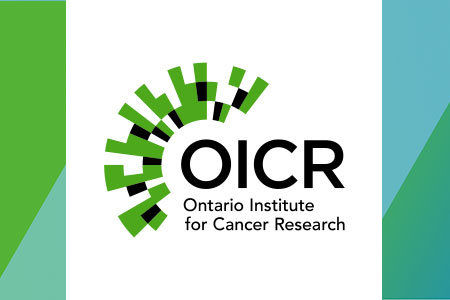
OICR researchers are advising and engaging in COVID-19 research initiatives in Ontario and around the world.

OICR-supported researcher Dr. Harriet Feilotter leads liquid biopsy research program.

OICR-supported researchers have launched an innovative clinical trial focussed on strengthening the immune system for one of the most vulnerable populations – cancer patients.

Research led by Dr. Timothy Hanna suggests that minimizing delays to treatment could improve cancer survival rates.
Training is not just about learning new skills or gaining knowledge, it is also essential to the long-term success of any research community, including Ontario’s. OICR’s support for training is helping to develop the next generation of cancer researchers and ensuring that the province remains on the leading edge of cancer research.
This year, OICR proudly launched the OICR Rising Stars in Cancer Research Network, which provides students and trainees with opportunities to collaborate, improve their skills and network with other cancer researchers.
To make sure training remained available during the pandemic, OICR established BioLab Hub, which provides free access to online training sessions. The new OICR-JLABS Cancer Symposium Series: Horizons and Controversies in Oncology, also pivoted to an online format to bring attendees thought provoking and informative discussion from internationally leading researchers. More than 620 people attended sessions on cell therapy and cancer epigenetics. Additionally, this year’s OICR Translational Research Conference, the first to be held virtually, brought together 427 researchers, with about half of the attendees being trainees.

146,000+ attendees at 4,100+ educational events supported by OICR to share knowledge and provide training
(since inception)

2,400+ students hosted by OICR-funded projects
(since inception)
OICR’s Investigator Awards Program recruits and retains talented researchers and clinician-scientists in Ontario to drive collaborations and maintain the province’s position as a world leader in cancer research. This year, we welcomed four new Investigators to the OICR community who brought with them expertise in computational biology, stem cells and cancer biology.




Together with FACIT, we're contributing to a strong, stable life sciences sector in the province based on made-in-Ontario innovations.
The challenges posed by COVID-19 have highlighted the importance of Ontario’s life sciences sector and shown that now, more than ever, local solutions driven by a foundation of research and innovation are needed to catalyze economic recovery.
OICR research continued to contribute to the growth of Ontario intellectual property, with five new patents awarded. With the support of OICR and FACIT, two new Ontario start-up companies were established, bringing our total number of start-ups created since inception to 29. These new companies attracted highly skilled personnel to fill 17 open positions, for a total of more than 650 employees at all the active start-ups in our portfolio.
$1 in funding from the Government of Ontario attracts an additional $5 from private sector and public funders to the province.
In 2020-2021, FACIT achieved a new commercialization milestone with $1.3 billion in follow-on financing and partnerships attracted by its seed investment portfolio, highlighting the significant value that FACIT is creating for Ontario’s investment in research. This continued success in such a challenging year shows the strength of life sciences in Ontario today, and the increasing potential of the province’s innovation ecosystem. OICR and FACIT will continue to work together as leaders in accelerating made-in-Ontario innovations and in keeping Ontario’s economy strong post-pandemic and well into the future.

5 patents awarded
39 patent applications submitted
(2020-2021)

29 start-up companies established with OICR and FACIT support (since inception)
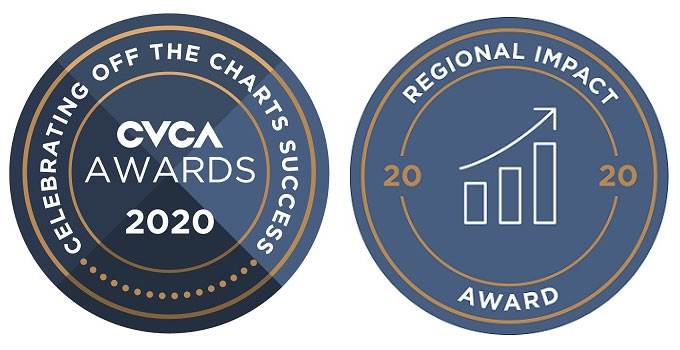
Award acknowledges FACIT’s commercialization impact in growing Ontario’s life sciences industry.

Following other successful Canadian biotech IPOs this year, Fusion’s IPO represents the largest by an Ontario biotechnology company.
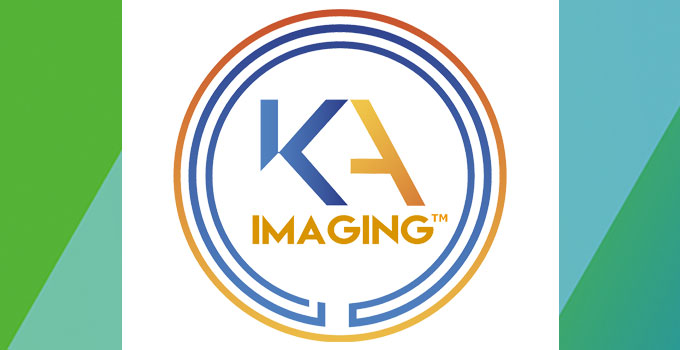
RevealTM enables bone and soft tissue differentiation in a single, highly sensitive x-ray exposure.
Solving cancer together means working directly with patients. OICR is committed to having patients help guide its work and make meaningful contributions by sharing their insights and perspectives at many stages in the research process. To realize this vision OICR established a Patient and Family Advisory Council, which will shape the Institute’s patient partnership plan. We welcome and thank our new patient partners.
OICR has launched a new Strategic Plan for 2021-2026 that builds on the Institute’s success and continues to emphasize collaboration, translation and commercialization of research. An increased focus on the early detection of cancer recognizes the potential of new technologies to find and stop cancer when it can be treated with the greatest likelihood of success. New programs to contribute to this research will be launched in the fall of 2021. As Ontario begins to emerge from the COVID-19 pandemic, OICR’s new strategy will provide the province with both health and economic benefits that will help in the province’s post-pandemic recovery.